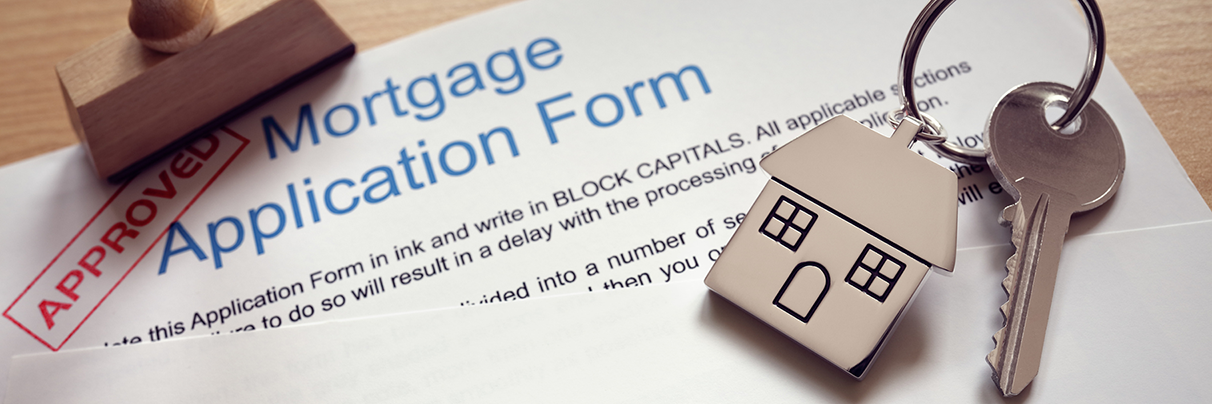When you’re in the process of buying a home, there are a variety of mortgage loans from which you can choose. It may feel overwhelming at first. But if you do your research — specifically determining your monthly budget, down payment, as well as reviewing your credit, you’ll have a better idea of which type of mortgage loan will work best for you.
This initial part of the home-buying process is made easier if you understand a little bit about each kind of loan. Read below for details on some of the most common types of mortgages, how to qualify for each and why it could be the best choice. And, make sure to bookmark our quick reference on mortgage loan terms to refresh your memory along the way!
Conventional Loans
These loans are your match if you have a strong credit history, stable employment history, minimal debt, and enough funds to put down at least 3%. Conventional loans can be used to finance nearly any type of property including primary residences, vacation homes, or investment properties.
Conventional fixed-rate mortgages are among the most common types of home loans. These mortgages allow you to secure a fixed rate for 15, 20, and 30-year loan programs. There are often fewer closing costs, flexible monthly payment terms, and no mortgage insurance with a 20% or more down payment.
Fixed-Rate vs. Adjustable-Rate (ARMs) Loans
Fixed-rate mortgages keep the same interest rate over the life of your loan, which means your monthly mortgage payment always stays the same. This can be a major benefit if you’re sticking to a strict budget, as well as if you plan to stay in your home longer than 10 years.
Unlike fixed-rate options, ARMs have variable interest rates. These loans come with a lower, introductory-rate period at the beginning of the loan term. However, once that expires, the rates adjust according to current market rates.
You should be comfortable with a certain level of risk when choosing this type of mortgage loan. If you don’t plan to stay in your home beyond a few years, an ARM can save you a good amount of money on interest payments.
Jumbo Loans
Jumbo loans are conventional types of mortgages that have non-conforming loan limits. This means the home price exceeds federal loan limits. These loans are more common in higher-cost areas and usually require more in-depth documentation in order to qualify.
Securing a jumbo loan makes the most sense if you’re looking to finance a high-end home. You’ll want to have excellent credit, a high income, and a significant down payment. As a reminder, a jumbo loan is determined solely by how much financing you need, not by the purchase price of the property.
Government-Backed Loans
The U.S. government isn’t a mortgage lender, but it does play a role in helping more Americans become homeowners. Government-backed loans are protected by mortgage insurance making it more flexible to qualify.
Three government agencies back mortgages: the Federal Housing Administration (FHA loans), the U.S. Department of Agriculture (USDA loans), and the U.S. Department of Veterans Affairs (VA loans).
FHA Loans
FHA loans are backed by the Federal Housing Administration. They’re a great option if you prefer a smaller down payment and have a lower credit score. FHA loans are indeed ideal for someone purchasing their first home. However, FHA loans are available to any buyer seeking a government-backed mortgage whether or not you’re a first-timer.
Advantages of FHA loans include lower down payments, flexible eligibility requirements, and lower monthly payments. The home must be your primary residence and, in most cases, can’t be a condo.
USDA Loans
USDA loans strive to improve the economy and encourage growth in rural areas.
To qualify, you must purchase a home in a USDA-eligible area and meet certain income limits. If you’re within the specified area and income range, these loans may not require a down payment.
VA Loans
VA loans provide flexible, low-interest mortgages if you’re a member of the U.S. military (active duty or veteran) and include your family. They don’t require a down payment and closing costs may be paid by the seller. A funding fee is charged on VA loans as a percentage of the loan amount to help offset the program’s cost to taxpayers.
This fee, as well as other closing costs, can be rolled into most VA loans or paid upfront at closing. VA loans tend to offer the best terms and most flexibility compared to other loan types.
Find The Best Type of Mortgage With Us!
Greater Texas Credit Union can help you choose the best type of mortgage — saving you money on interest rates, monthly payments, and stress over the home-buying process!
Still have questions? We have answers!


